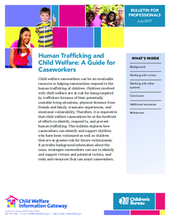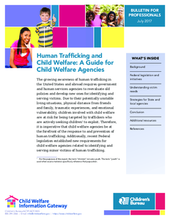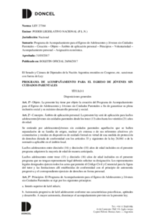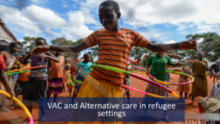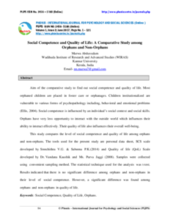Displaying 1551 - 1560 of 2221
This bulletin for professionals in the child welfare field explores how caseworkers can identify and support children who are victims of human trafficking as well as children who are at greater risk for future victimization.
This bulletin is intended for child welfare agency leadership in the US and explores how child welfare agencies can support children who have been victimized as well as children that are at greater risk for future victimization.
The purpose of this study is to explore differences in family relationships, family subjective well-being (SWB) and overall SWB between children living in three different living arrangements – a two-parent family, a single-parent family and a separated family.
This study sought to examine the factors associated with the length of foster parenting duration. Study results will contribute to developing implications for successful recruitment and retention policies and practices for foster parents.
La presente ley tiene por objeto la creación del Programa de Acompañamiento para el Egreso de Adolescentes y Jóvenes sin Cuidados Parentales a fin de garantizar su plena inclusión social y su máximo desarrollo personal y social.
This presentation provides an overview of child protection issues and care reform in Ghana.
This UNHCR presentation provides an overview of alternative care for children in East African refugee contexts.
The aim of this study was to compare outcomes for children living in three different types of care in Chile: biological parental care, residential care, and foster care.
This study compares the level of social competence and quality of life among orphans and non-orphans.
This study examined the odds of reentry across multiple common permanency types for a cohort of 8107 children who achieved permanency between 2009 and 2013.

